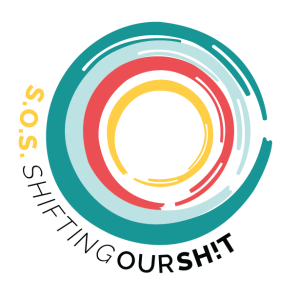In episode 11 of the SOS podcast, Megan Bartley and Rob Giltner discuss the importance of rest and sleep for our overall health. They start by sharing their own experiences with Monday anxiety and how the podcast recording sets a nice pace for the week. They then dive into the science of sleep, including the different stages of sleep and the impact of sleep deprivation on our physical and mental health. Megan and Rob also offer practical tips for improving the quality and quantity of our sleep, such as setting a consistent sleep schedule and limiting screen time before bed. Overall, the episode emphasizes the importance of prioritizing rest as a key component of our overall well-being.
Get a good quality sleep.
Getting enough quality sleep is essential for our physical and mental health, yet it is often overlooked or taken for granted. According to the Today Show and CBS Mornings, sleep is trending and people are becoming more aware of its importance. This is likely due to the pandemic and the need to focus on what truly matters.
When we don’t get enough quality sleep, it can have a negative effect on our physical and mental health. Lack of sleep can lead to fatigue, irritability, difficulty concentrating, and an overall decrease in productivity. It can also increase our risk of developing chronic health problems such as diabetes, heart disease, and obesity. Additionally, lack of sleep can lead to depression and anxiety.
Fortunately, there are several steps we can take to ensure that we get enough quality sleep. First, it is important to establish a consistent sleep schedule and stick to it. Going to bed and waking up at the same time every day helps to regulate our body’s internal clock and can make it easier to fall asleep and stay asleep. It is also important to avoid caffeine and other stimulants late in the day and to limit our exposure to blue light from screens before bed. Additionally, creating a relaxing bedtime routine can help us to wind down and prepare for sleep.
Finally, it is important to be mindful of our sleep environment. Our bedroom should be dark, cool, and quiet, and it should be free from distractions such as TVs, phones, and computers. Investing in comfortable bedding and a supportive mattress can also help us to get a better night’s sleep.
Getting enough quality sleep is essential for our physical and mental health. By following these simple steps, we can ensure that we get the rest we need and wake up feeling refreshed and ready to take on the day.
Rest your mind to be productive.
Resting your mind is just as important as getting enough sleep. Resting your mind allows you to be more productive and creative. When we are constantly multitasking and our minds are going a mile a minute, it can be difficult to focus and be productive. Taking the time to rest your mind can help to clear your thoughts and allow you to focus on the task at hand.
One way to rest your mind is to practice mindfulness. Mindfulness is the practice of being present in the moment and aware of your thoughts and feelings. This can be done through meditation, deep breathing, or simply taking a few moments to pause and observe your thoughts. By taking a few moments to focus on your breath and bring your awareness to the present moment, you can let go of the worries and stress that can often prevent us from being productive.
Another way to rest your mind is to take a break from technology. Technology can be a great tool for getting things done, but it can also be a distraction. Taking a break from technology can help to clear your mind and allow you to focus on the task at hand. Taking a walk, reading a book, or even just sitting in silence can help to reset your mind and allow you to be more productive.
Lastly, getting enough sleep is essential for resting your mind. Getting enough sleep helps to restore your body and mind, allowing you to be more productive and creative during the day. Make sure to get enough sleep every night, and if you are having trouble sleeping, try some relaxation techniques such as meditation, deep breathing, or even just listening to calming music.
Resting your mind is essential for being productive and creative. By taking the time to practice mindfulness, take a break from technology, and get enough sleep, you can ensure that your mind is rested and ready to take on the day.
Slow down to go faster.
When multitasking, it is important to pay attention to the speed of your thoughts. If you find that your thoughts are racing at 300 miles an hour, it’s time to slow down. By taking the time to slow down and process your thoughts, you can make sure that you are not experiencing burnout.
When it comes to multitasking, it is important to find the right balance. If you find yourself in a stressful situation, it’s okay to speed up your multitasking. However, it’s important to recognize when you need to slow down and take a break. Taking a break can help you to clear your mind and refocus.
Mindfulness is a great way to slow down and focus on the present moment. By taking the time to practice mindfulness, you can become more aware of your thoughts and feelings. This can help you to be more mindful of the tasks you have to do and can help you to be more productive.
It is also important to take a break from technology. Technology can be a great tool for productivity, but it can also be a distraction. Taking a break from technology can help you to clear your mind and focus on the task at hand.
Finally, it is important to get enough sleep. Sleep is essential for your physical and mental health. When you get enough sleep, you can ensure that your mind is rested and ready to take on the day.
Slowing down to go faster is an essential part of multitasking. By taking the time to practice mindfulness, take a break from technology, and get enough sleep, you can ensure that your mind is rested and ready to take on the day. By slowing down and being mindful of your thoughts and feelings, you can make sure that you are not experiencing burnout and are able to be productive and creative.
Believe in what works for you.
One of the most important things to remember when it comes to rest and relaxation is to believe in what works for you. Everyone needs different things in order to relax and rest, and it is important to find what works for you and to stick with it. For some, it may be reading a book or listening to music, while for others it may be taking a hot bath or going for a walk. Whatever it is, it is important to believe that it will work for you and to trust that it will help you to relax and rest.
Another important aspect of rest and relaxation is to practice mindfulness. Mindfulness is the practice of being aware of your thoughts and feelings in the present moment. This can help to reduce stress and anxiety, as well as to create a sense of calm and peace. It can also help you to be more aware of your body and to recognize when you need to take a break or to slow down.
Finally, it is important to get enough sleep. Sleep is essential for our physical and mental health, and it is important to make sure that you are getting enough restful sleep. This can include setting a regular bedtime and sticking to it, avoiding screens before bed, and avoiding caffeine and alcohol in the evenings.
Believing in what works for you and taking the time to practice mindfulness and get enough sleep can help you to stay rested and productive. Taking the time to rest and relax can help to reduce stress and anxiety, and can help you to be more productive and creative. By taking the time to believe in what works for you and to practice mindfulness, you can ensure that you are getting the rest and relaxation that you need.
Focus on rest, not sleep.
In today’s society, it is easy to believe that we need something outside of ourselves to help us get the rest and relaxation that we need. We often think that we need to take something to help us sleep, such as herbal remedies or homeopathic remedies, and even CBD. However, it is important to remember that everybody’s bodies are different, and that what works for one person may not work for another. It is important to talk to your doctor about any remedies you are considering, as there could be other things going on than just not being able to sleep.
It is also important to remember that rest is just as important as sleep. Taking the time to rest can help to increase your recovery level and can help you to perform better. Professional and amateur athletes are now being given tracking devices to gauge their sleep and recovery, as science is showing the connection between rest and peak performance. It is important to take the time to rest and relax, and to give your mind a break.
Finally, it is important to be intentional about the words you use when you are getting ready for bed. Instead of thinking “I’m going to have a crappy night’s sleep,” it is important to remind yourself that your only responsibility is to get a good night’s rest. This can help to reduce anxiety and can help you to get the rest and relaxation that you need.
Taking the time to focus on rest, rather than sleep, can help you to stay rested and productive. By taking the time to believe in what works for you and to practice mindfulness, you can ensure that you are getting the rest and relaxation that you need. Taking the time to rest and relax can help to reduce stress and anxiety, and can help you to be more productive and creative.
Dreams are important and valid.
Dreams are important and valid. They can be a way to process and make sense of the world, and can be used to gain insight into our thoughts and feelings. Dreams can be a way to explore our subconscious and can help to provide us with a deeper understanding of ourselves and our lives.
Dreams can be used to:
- process our emotions and experiences, and can provide us with a deeper understanding of our lives and the world around us.
- gain insight into our lives and our relationships. Dreams can provide us with a way to explore our relationships, and can help to provide us with a deeper understanding of how we interact with others. Dreams can also be a way to explore our own emotions, and can help to provide us with a deeper understanding of our own feelings and thoughts.
- explore our creativity and ideas. Dreams can provide us with a way to explore our creative ideas, and can help to provide us with a deeper understanding of our potential and capabilities. Dreams can also be used as a way to gain insight into our own potential, and can help to provide us with a deeper understanding of our own capabilities and potential.
- explore our spiritual and religious beliefs. Dreams can provide us with a way to explore our spiritual and religious beliefs, and can help to provide us with a deeper understanding of our beliefs and our connection to the divine.
- explore our fears and anxieties. Dreams can provide us with a way to explore our fears and anxieties, and can help to provide us with a deeper understanding of our fears and anxieties.
Dreams are important and valid. They can provide us with a way to explore our thoughts, feelings, relationships, creativity, spiritual and religious beliefs, and fears and anxieties. Taking the time to explore our dreams can help us to gain insight into our lives and our relationships, and can help to provide us with a deeper understanding of our lives and the world around us.
Listen to your subconscious.
Dreams can be interpreted in a variety of ways. Some people believe that dreams are a way for our subconscious to communicate with us, while others believe that they are simply manifestations of our thoughts and feelings. Regardless of the interpretation, it is important to pay attention to the messages our dreams are sending us.
One way to interpret dreams is to look for symbols. Symbols can represent different aspects of our lives, such as our relationships, our feelings, or our goals. For example, if you dream of a deer, it could represent your feelings of being skittish or cautious. Or it could mean something else entirely, depending on your own personal interpretation.
Another way to interpret dreams is to look at the people and objects in them. Dreams can be a way for our subconscious to communicate with us, and the people and objects in our dreams can represent different aspects of our lives. For example, if you dream of a house, it could represent yourself, and the people and objects in it could represent different parts of yourself.
Finally, it is important to listen to our own interpretations of our dreams. It is easy to find dream interpretations online, but it is important to remember that the meaning of a dream is personal to us. We all have our own unique experiences and beliefs, and these will shape the way we interpret our dreams.
Dreams can be a powerful tool for self-discovery and understanding. By taking the time to explore our dreams, we can gain insight into our lives and our relationships, and can help to provide us with a deeper understanding of our lives and the world around us. Listening to our subconscious and interpreting our dreams can be a great way to gain insight into our lives and our true selves.
Trust yourself and rest.
However, it’s also important to remember that we can only truly trust ourselves. We can’t rely on outside sources to provide us with the answers we need. We must take the time to listen to our inner voice and trust our instincts. This is especially true when it comes to rest.
We often put so much pressure on ourselves to get enough sleep, but this can be counterproductive. Instead of trying to force ourselves to sleep, we should focus on finding what’s restful to us. This could include taking breaks throughout the day, or even just focusing on our breathing for 30 seconds when we’re at a stoplight. We should also be curious about how we can allow our minds to rest throughout the day.
It’s important to remember that we are the experts on ourselves. We should be curious and ask ourselves what we need in order to rest. This could be different for everyone, and could include things like a dark room, earplugs, and a warm blanket. We should also take inventory of when we need rest and what has worked and hasn’t in the past.
By trusting ourselves and taking the time to rest, we can gain greater insight into our lives and our true selves. It’s important to remember that we are the experts on ourselves and that we should take the time to listen to our inner voice and trust our instincts.
Get adequate sleep.
Getting adequate sleep is essential for both physical and mental health. Sleep deprivation can lead to a variety of health concerns, including an increased risk of obesity, diabetes, heart disease, and stroke. It can also lead to cognitive impairment, depression, and anxiety. Lack of sleep can also impair your ability to concentrate and make decisions, leading to poor performance at work or school.
In today’s world, it can be difficult to find the time to get enough rest. Our lives are busy and it can be hard to prioritize sleep. However, it is important to make it a priority. It is important to create a healthy sleep routine and stick to it. Make sure to get an adequate amount of sleep each night, which is typically between 7-9 hours. It is also important to create a comfortable sleep environment. Make sure your room is dark, quiet, and cool. Avoid screens an hour before bed and try to limit caffeine and alcohol consumption.
In addition to getting enough sleep, it is also important to practice good sleep hygiene. This includes avoiding napping during the day, avoiding caffeine late in the day, and avoiding stimulants such as television, computers, and phones before bed. It is also important to practice relaxation techniques such as deep breathing, yoga, and meditation.
Getting adequate sleep is essential for our physical and mental health. Doing so can help reduce stress, improve concentration, and boost our overall wellbeing. It is important to prioritize sleep and create a healthy sleep routine. By doing so, we can ensure that we are getting the rest we need to be our best selves.









